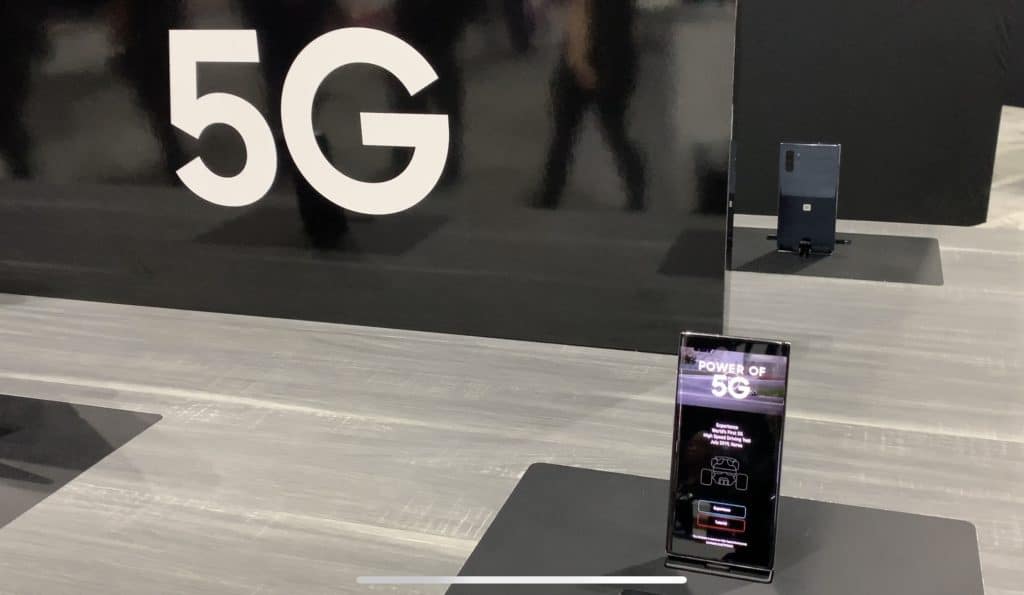As a keynote speaker and futurist, I spend a lot of time evaluating emerging technology and its impacts on consumer behavior with an eye towards how experiences are going to evolve.
I recently had the opportunity to attend Mobile World Congress Americas 2019 in Los Angeles (MWC LA). Intelligent connectivity was the theme, and the various vendors, speakers, and sponsors brought forward several experiences and solutions that may transform the consumer experience.
Among them, new interfaces and form factors will redefine the line between physical and digital reality. Artificial intelligence will process massive amounts of information required to create new experiences and transform business. And 5G will usher in new ways to enhance creativity, connectivity and allow for the shift from the internet of things to autonomous things.
When evaluating new technology and how it impacts behavior, I like to use three filters. Empower, Exponential, and Enhance. Empower is all about technology that allows consumers to control experiences. Exponential is all about the role of intelligent systems with a focus on providing ease, convenience, and efficiency. Enhance focuses on the line between digital and physical reality, and multimodal interfaces such as voice, vision, and touch that redefine how we view reality.
Empower – Technology that empowers consumers
The accessibility and ubiquity of mobile devices have led consumers’ expectations of control over their experiences. YouTube is now a remote control, gaming is a vital part of culture, and the camera is a platform to create experiences via augmented reality filters. It is this reliance on connectivity for human connection that drives the filter of empowerment.
5G networks will fundamentally transform how we interact with the world around us. Through instant connectivity, reduced end-to-end (E2E) latency, energy efficiency, and reliability, consumers will have the computing capability to connect with friends and families across modalities.
5G Devices – During the 3-day conference, both Samsung and Verizon showcased 5G-enabled devices. Samsung demoed the Galaxy S10 5G, and Verizon set up a private 5G network to showcase incredibly fast download speeds, highly responsive augmented reality, and the ability to cast in 4K resolution wirelessly.

During the Nokia analyst session, I had the opportunity to listen to a keynote by Mike Murphy, Nokia’s CTO, North and South America. Mike talked about how 5G is going to happen, outlining the timeline for 5G, and when 5G devices will ultimately surpass 4G. The tipping point, according to Mike, is 2024. This is a pivotal date to consider, as the ubiquity of 5G will lead to advanced capabilities and experiences.
5G Gaming – Gaming is now a 100 billion dollar industry. With the rise of streaming and competitive gaming, now 665 million people watch others play games online, and esports has an audience of about 300 million. With the growth of cloud-based gaming services like Google’s Stadia and mobile-centric Hatch, the need for high connection speeds combined with low latency will be essential to keep on-the-go consumers connected to their favorite games and streamers.
Gaming was a key area of focus from NVIDIA, Nokia, and Sprint. Nokia and Sprint recently partnered with Hatch, a game-streaming service designed for mobile 5G networks, and will be preloading the Hatch premium service, offering a three-month subscription. Nokia is providing the 5G infrastructure, and Sprint will offer various devices and packages focused on enhancing 5G gaming.

At MWC LA, NVIDIA showcased its GeForce PC Gaming on 5G. NVIDIA’s next evolution of mobile cloud gaming is called NVIDIA GeForce Now, a beta program that allows any device to become a high powered gaming rig. It’s built on NVIDIA’s powerful GPUs with promised frames per second of 120 or higher with reduced latency. The ability to convert any device into a high powered gaming device on par with a high end gaming PC could be a game-changer as it allows for accessibility where cost for a high end PC could be prohibitive.
5G in the Home – 5G fixed wireless access (FWA) was a key point of discussion at MWC LA. Whole-home coverage will allow for streaming in 4K, low lag video chat, faster connections, and increased productivity. Verizon showcased 5G home devices that included an Alexa voice-enabled 5G router, receivers, and range extenders.
Depending on the location of the home and its proximity to cell sites, it can be an easy setup process and features automatic upgrades. What’s different from 5G in the home vs. previous 4G FWA systems is that previous methods were built for a single purpose. With 5G in the home, it’s designed with a smartphone chip that allows for it to be a multi-purpose network, so whether it’s a 5G mobile device or 5G home, the technology is the same.
5G live entertainment – Verizon recently launched new 5G networks across 13 NFL stadiums and a handful of NBA arenas such as Madison Square Garden. The goal with 5G for entertainment venues is to truly enhance the fan experience.
BIRD’s ability to convert any physical space into an interactive medium fits with the vision of an ambient computing future. Essentially, we will continue to evolve towards a time where we are not only inputting into devices, but our environment continues to adapt to us.
Mobile World Congress in LA was an inflection point of how the future of intelligent connectivity will continue to evolve. 5G represents a significant leap forward in the ability to connect everything and everyone. By using the filters of Empower, Exponential, and Enhance, it’s possible to categorize emerging use cases and align consumer behavior with the ideal experience.
Intelligent systems combined with the massive amount of data exhaust that 5G will provide will rapidly change how we experience reality. From enhancing the real world through digital overlays, providing 360-degree multiparty telepresence to full simulation, 5G will be one of the most significant technological advancements of this century.
All images provided by the author.


Recent Comments